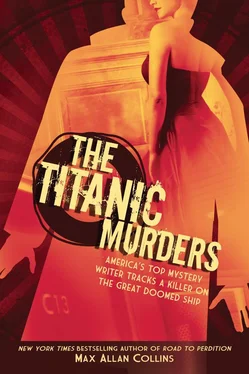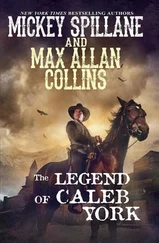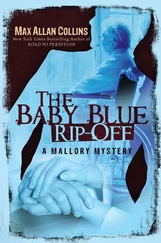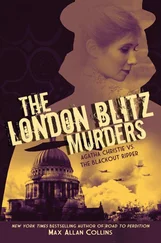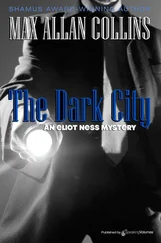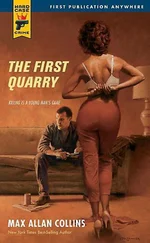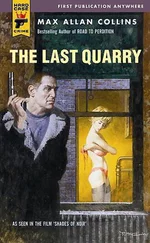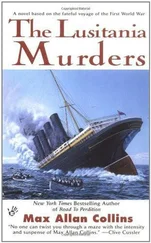Max Collins - The Titanic Murders
Здесь есть возможность читать онлайн «Max Collins - The Titanic Murders» весь текст электронной книги совершенно бесплатно (целиком полную версию без сокращений). В некоторых случаях можно слушать аудио, скачать через торрент в формате fb2 и присутствует краткое содержание. Жанр: Исторический детектив, на английском языке. Описание произведения, (предисловие) а так же отзывы посетителей доступны на портале библиотеки ЛибКат.
- Название:The Titanic Murders
- Автор:
- Жанр:
- Год:неизвестен
- ISBN:нет данных
- Рейтинг книги:5 / 5. Голосов: 1
-
Избранное:Добавить в избранное
- Отзывы:
-
Ваша оценка:
- 100
- 1
- 2
- 3
- 4
- 5
The Titanic Murders: краткое содержание, описание и аннотация
Предлагаем к чтению аннотацию, описание, краткое содержание или предисловие (зависит от того, что написал сам автор книги «The Titanic Murders»). Если вы не нашли необходимую информацию о книге — напишите в комментариях, мы постараемся отыскать её.
The Titanic Murders — читать онлайн бесплатно полную книгу (весь текст) целиком
Ниже представлен текст книги, разбитый по страницам. Система сохранения места последней прочитанной страницы, позволяет с удобством читать онлайн бесплатно книгу «The Titanic Murders», без необходимости каждый раз заново искать на чём Вы остановились. Поставьте закладку, и сможете в любой момент перейти на страницу, на которой закончили чтение.
Интервал:
Закладка:
“I won’t say a word about you! Your secret is safe with me!”
Futrelle dragged the man up and over the finely carved oak railing as if he were hauling a big catch onto the deck of a fishing boat.
Crafton, on his feet again, began smoothing out his wrinkled attire, shaking as if he had the palsy. “That’s assault, sir-you could be put in irons! There were witnesses!”
“The witnesses seem to have gone-but we could bring this matter to the attention of the ship’s master-at-arms. Since I have no concern whatsoever, whether the information you hold on me is ever released to the public, I’d be glad to bring extortion charges against you.”
Crafton, still smoothing out his attire, thought about that, and said, “You may hear more from me later.”
“Why don’t you keep digging on me? Maybe you’ll come up with more. There are rumors to the effect that I have a terrible temper.”
Crafton moved down the stairway, at first quickly, then grasping onto the railing, as if afraid of losing his footing, and walking more slowly, if not steadily; he retrieved gloves, fedora, and walking stick, gathered up his change, and disappeared through the reception area, almost running.
Below, several navy-blue-jacketed stewards darted into view. They looked up at Futrelle, who leaned casually against the railing; one of them called: “Is there a problem, sir? We had reports of an altercation.”
“Really? I thought it was some sort of acrobatic display. Part of the ship’s entertainment.” He shrugged, and smiled, nodding to the confused stewards as he strolled down and around the stairs to use the electric lift.
When he got to their stateroom, May was entertaining the Harrises-who pretended to be outraged by the Futrelles’ superior quarters-and soon the little group decided to take one of the tours of the ship the purser was offering. The tour began with an inspection of the purser’s own office, followed by a look at the spacious kitchens with their modern timesaving devices (including an electric potato peeler), the libraries and other lavish public rooms, peeking in at the squash court, swimming pool and gymnasium. Rumors of a racetrack aboard were entirely unfounded, they were assured.
The purser’s Cook’s tour even included a quick stroll through the normally off-limits Second and Third Classes. Lounges and libraries that would have been First-Class on any other ship were glimpsed in Second, and the mix of English, French, Dutch and Italian immigrants in Third Class had comfortable lounges and smoking rooms, and a dining room with separate tables and swivel chairs, that were anything but typical of steerage.
After the tour, the Futrelles again climbed to the boat deck, where orchestra leader Wallace Hartley and his little group were giving an open-air concert of ragtime and other lively popular tunes. Before long the sun was low in the horizon.
“Is that France?” May asked from a polished wooden railing. It was just May and her husband, the Harrises having already gone in to get dressed for dinner.
The coastal chalk cliffs glowed in the reddish sunset, as if they had somehow caught fire, and yet the effect was strangely soothing. At the end of a long breakwater, a structure was making itself known as a lighthouse.
“That’s France,” he told her.
They stood watching the dying sun’s rays reflecting across the breakwater’s gentle swells. The ship’s speed slackened; the great ship would soon be dropping anchor to take on more passengers.
“I’m tempted to get off, and continue our second honeymoon there,” she said.
The city of Cherbourg lay ahead, spread along the low-lying shore, dwarfed by the Mount Roule, purple in the twilight. The lights on deck winked on.
“Believing the bad omens, darling?”
“No, no, Jack… France is just so romantic.”
The wind was kicking up, waves getting choppier, the sky dark with more than just approaching night.
“I think a squall’s coming,” Futrelle said. “Let’s get inside and change for dinner.”
“Oh yes,” May said, holding on to her feathered chapeau. “Oh, Jack-what about the terrible man you were going to meet? You didn’t strike him, did you?”
“No, dear,” Futrelle said. “I didn’t strike him.”
DAY TWO
FOUR
Like their previous stop, Cherbourg, the Irish port of Queenstown ahead was too small to accommodate the Titanic ; so anchor would be dropped offshore, for the arrival of the final batch of passengers and the taking on of mail sacks (the R.M.S. in R.M.S. Titanic did, after all, stand for “Royal Mail Ship”).
From the starboard boat deck, where Jack and May Futrelle sat side by side in deck chairs, blankets wrapped about their already coat-clad bodies, the morning seemed an exceptionally lovely one, blue cloud-fleeced sky, wind rather high but the blue-green waters surprisingly calm. They were unaware of the full Atlantic swell crashing against the ship’s port side, deceived by the ship’s uncanny ability-even on the boat deck-to emulate terra firma.
Last night, in the First-Class Dining Saloon, the Futrelles and their tablemates had found themselves paying less attention to their plates of endless, wonderful food (course upon course), and more to the new crop of passengers arriving, courtesy of the Cherbourg boat train. The subtle clatter of silverware on fine china was drowned out by the nearby bustle of stewards porting luggage, table talk trumped by the buzz of conversation of new arrivals.
Rene and Henry would point out this luminary and that one-here John Jacob Astor, his young bride and their rambunctious friend Maggie Brown; there Benjamin Guggenheim trailing behind his mistress, the glamorous French singer Madame Pauline Aubert, as if fooling anyone that they weren’t together (an effort that would be short-lived).
But these were just glimpses of famous faces and opera-house fashions, and at the orchestral evening that followed in the lounge (selections from Tales of Hoffmann and Cavalleria Rusticana ), the newcomers were nowhere to be seen. Nor did they appear in the smoking room later, where Astor and Guggenheim might be expected to drop by for a Cuban cigar and a snifter of brandy.
Of course, both millionaires had boarded with beautiful young women, and Futrelle was of the opinion that Cuban cigars and snifters of brandy came in a distinct second and third in a contest involving the late-night company of such beauties.
And none of it seemed to be happening on a ship, rather in some landlocked hotel; only those nearest the windows could have suspected that outside, on deck, a gale was blowing.
Now the gale was a memory, the morning clear, as the Irish coastline showed itself, the gray mountains of Cork bobbing above the horizon.
“There it is!” May said, pointing. “The Old Head of Kinsale!”
The rocky promontory, peaked by a lighthouse, was a familiar and comforting sight to well-seasoned transatlantic travelers like the Futrelles.
“Cork Harbor’s just around the bend,” Futrelle said.
And, as if at Futrelle’s bidding, the great ship began its long, easy turn to port.
The married couple had taken a late breakfast-pressing ten-thirty-in the exquisitely continental a la carte restaurant, nicknamed the Ritz after the Ritz-Carlton dining rooms of White Star’s German rival, the Hamburg-Amerika Line. They had spent an at times spirited, at times tranquil morning in their stateroom, doing the sort of things a healthy, loving couple on their second honeymoon tend to do.
Two miles offshore, within the shelter of twin forts guarding the harbor, the Titanic dropped anchor, as twin tenders-the Ireland and America -drew alongside her with passengers and mail. The waterfront of Queenstown-a quaint seafaring village not unlike Scituate, the Massachusetts home of the Futrelles-was lined with sightseers, tiny well-wishers whose waving could barely be made out, whose cheering could scarcely be heard.
Читать дальшеИнтервал:
Закладка:
Похожие книги на «The Titanic Murders»
Представляем Вашему вниманию похожие книги на «The Titanic Murders» списком для выбора. Мы отобрали схожую по названию и смыслу литературу в надежде предоставить читателям больше вариантов отыскать новые, интересные, ещё непрочитанные произведения.
Обсуждение, отзывы о книге «The Titanic Murders» и просто собственные мнения читателей. Оставьте ваши комментарии, напишите, что Вы думаете о произведении, его смысле или главных героях. Укажите что конкретно понравилось, а что нет, и почему Вы так считаете.
